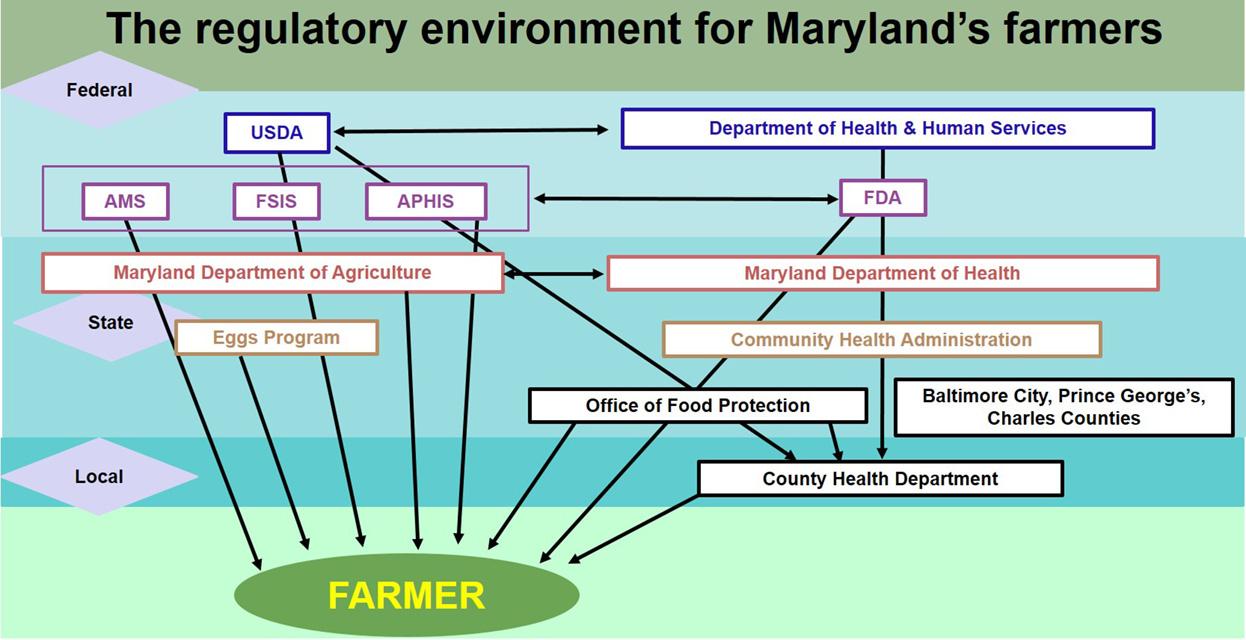At the federal level, the Food & Drug Administration (FDA) and the United States Department of Agriculture (USDA) have jurisdiction, which means they have the authority to make and enforce regulations applicable to any state or territory. Within the USDA is the Food Safety Inspection Service (FSIS). FDA and FSIS have overlapping authority for making and enforcing food safety standards. For example, FSIS regulates livestock and dairy farms, but FDA regulates milk pasteurization. FSIS regulates animal slaughter facilities and grades meat, but FDA regulates products that contain meat as an added ingredient, such as sausage pizza and frozen dinners. FSIS regulates eggs, but FDA regulates processed egg products.
At the state level, each state has a department of agriculture and a department of public health, both of which must, according to federal law, adopt and enforce food safety regulations at least equal to Federal standards. State standards may be more restrictive than Federal standards.
Some states have “home rule” which means designated areas (e.g., towns or counties) may act independently, and their regulations may be more restrictive than state regulations. As a result, at the local level, the food safety system has quite a bit of variation in authority, process, interpretation, and enforcement
Regulatory Environment (click on image to enlarge)
